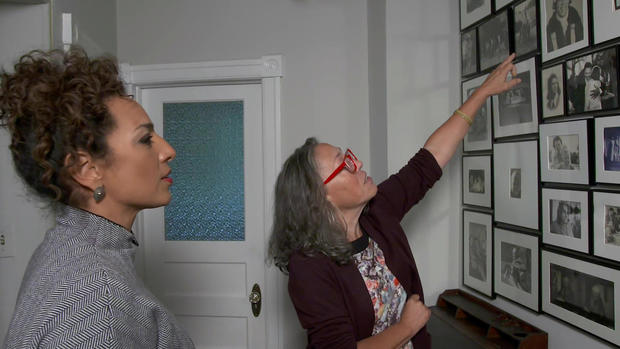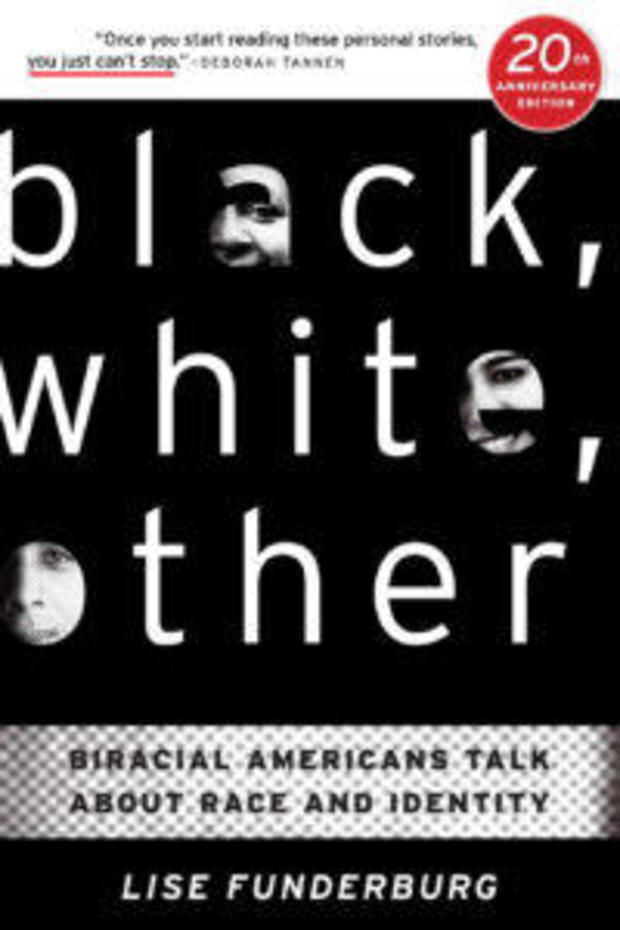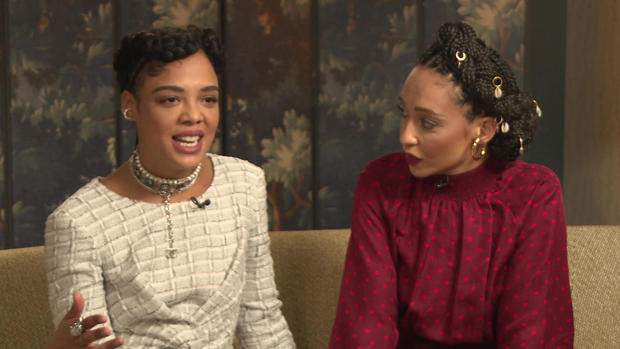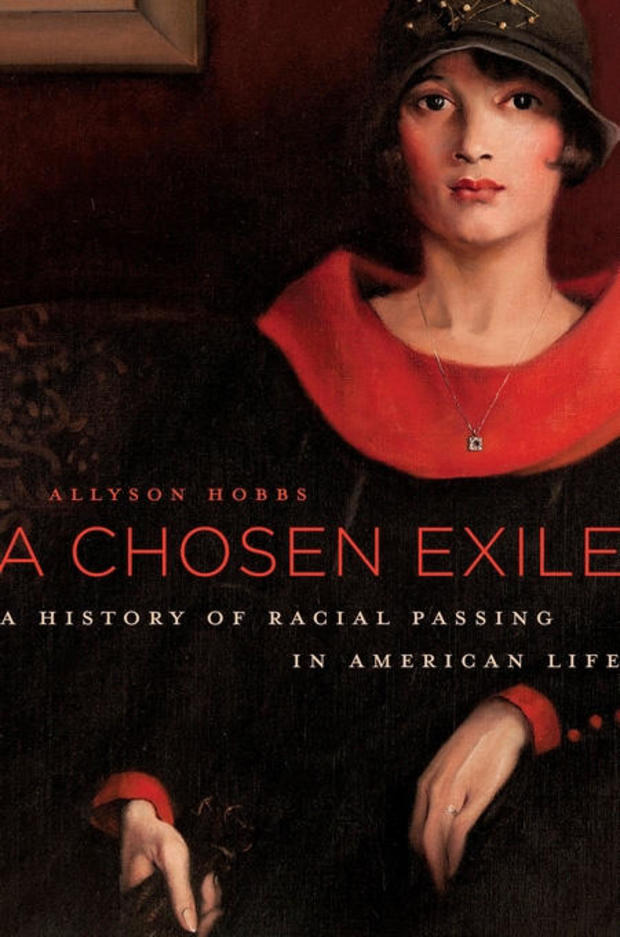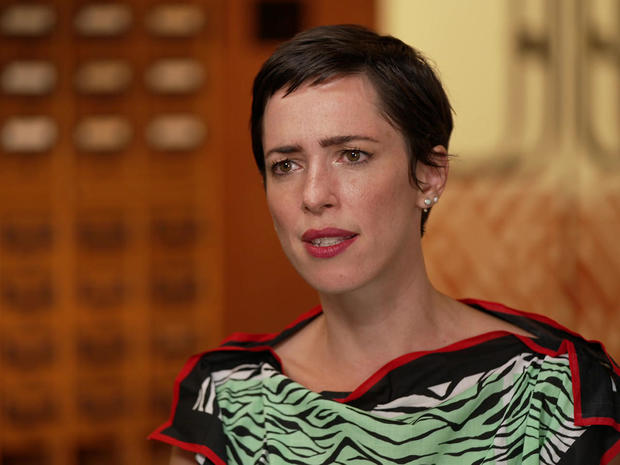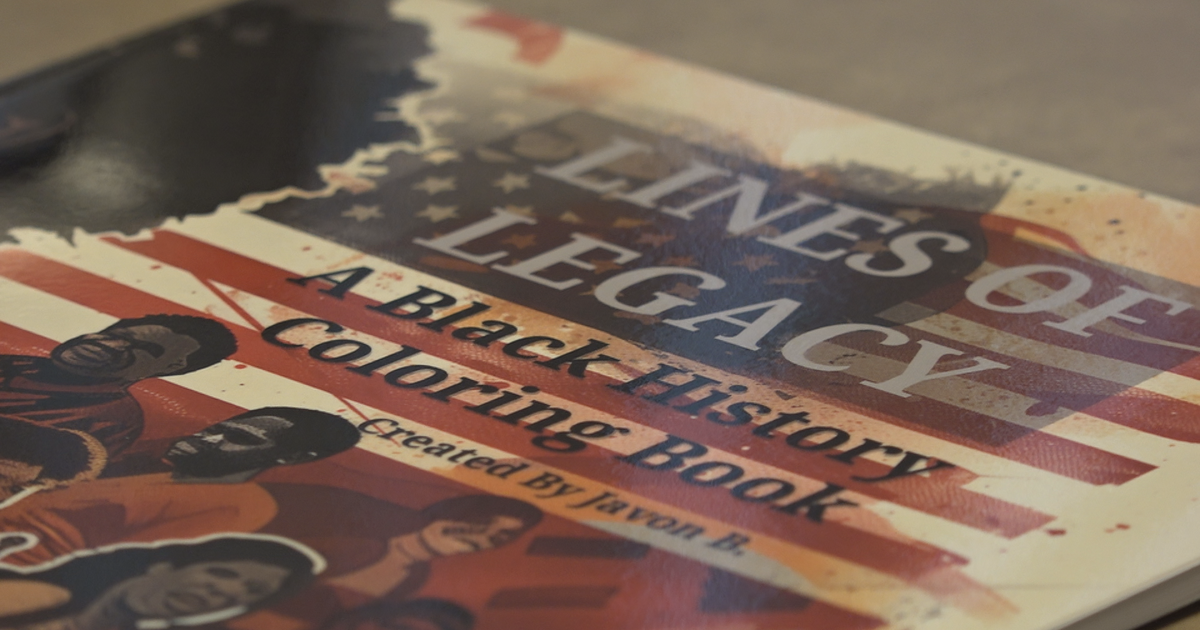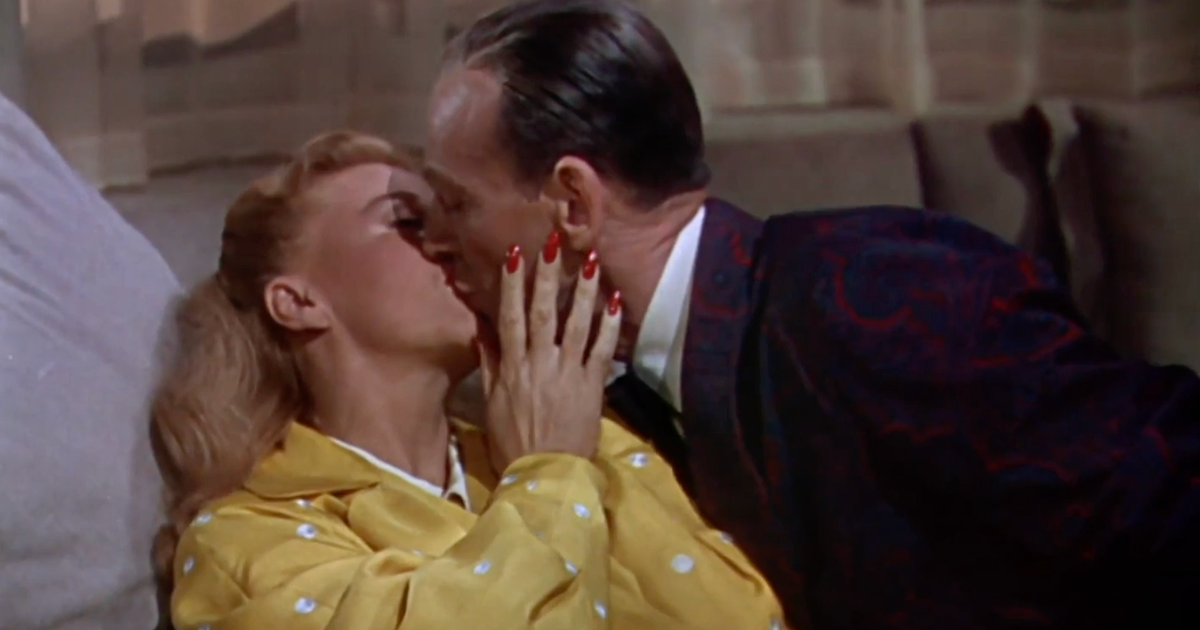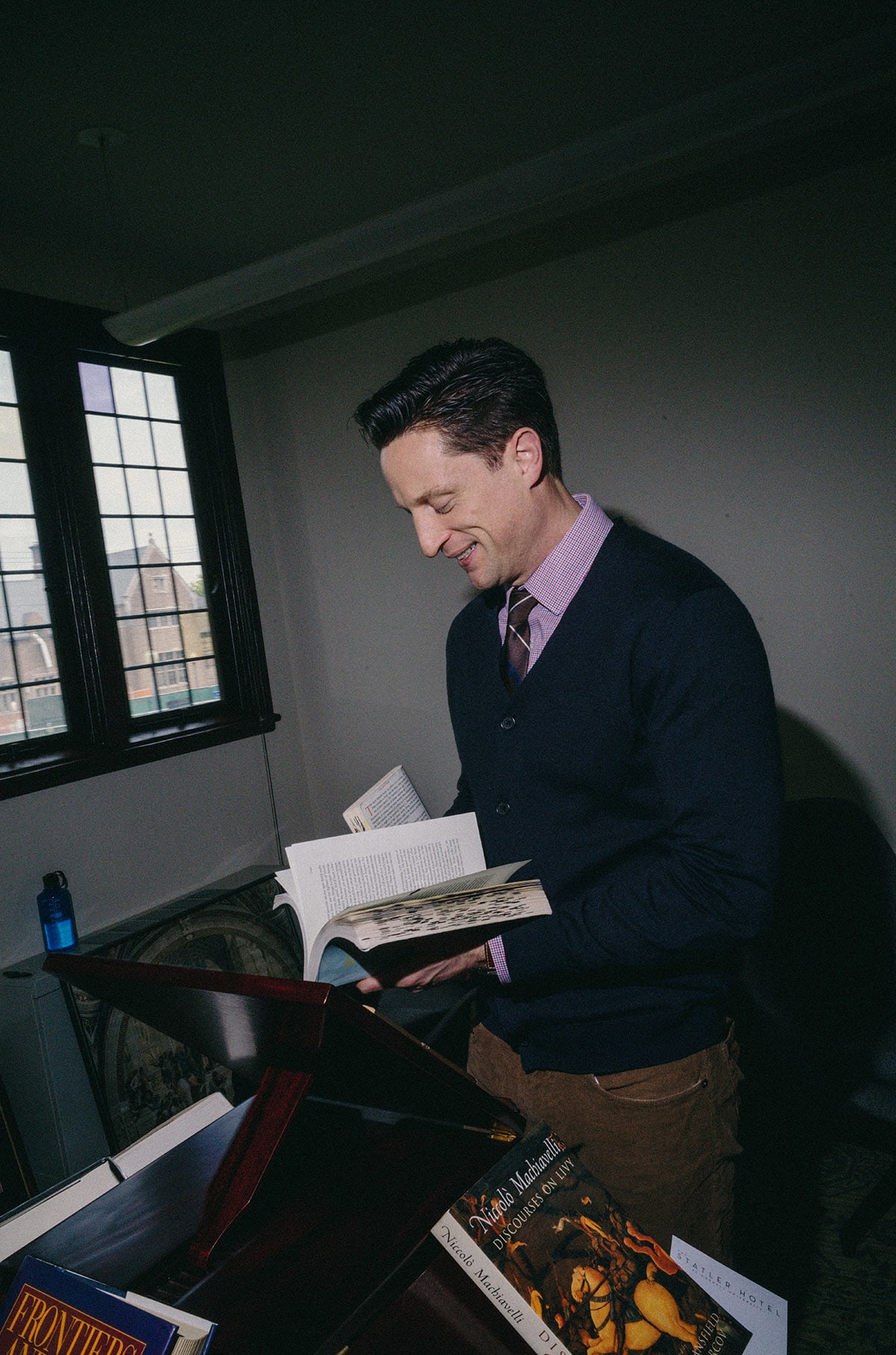Passing: On crossing the color line
It's been a theme in Hollywood for years, from "Imitation of Life," to "The Human Stain." And off-screen, the subject of "passing" – crossing the color line – is just as complex.
"The world perceives me as White, at least visually," said Chicago lawyer Martina Hone, who has lived her whole life balancing her Black mother's identity with her European father's privilege.
"CBS Saturday Morning" co-host Michelle Miller asked, "Have you ever passed at any point in your life?"
"I've never passed intentionally," said Hone. "I have never like thought to myself, 'I'm going to go in here and pretend that I'm White.' You walk into a room, people assume you have the power of a White person in this country, you know? And that experience is not the same experience that most Black people have in this country."
Lise Funderburg is the author of "Black, White, Other," and also mixed race. She showed Miller photos of her family.
"This is a family that is clearly Black," said Miller. "You're just the exception?"
"I'm just on the melanin-challenged end of the family spectrum!" Funderburg laughed. "There's all of the advantages with appearing to be White; you can get a cab, you're not followed in stores. But it also means others expose their racism to you – they do it in comments, they do it in behaviors – and you're a witness to it."
She said passing describes when a member of a particular group is perceived as a member of another. "I've talked to people who are gay who talk about 'being straight' passing," said Funderburg. "No one they encounter will necessarily know the full breadth of their identity unless they choose to tell it to people. And it is up to you to either disabuse them of that notion, or to correct that, or to challenge that – or not."
This week, a new film will put passing into the spotlight again. Based on the 1929 novel by Harlem renaissance writer Nella Larsen, "Passing" tells the story of two Black women, one who actively passes for White, the other who does not.
To watch a trailer for the film "Passing" click on the video player below.
Rebecca Hall directed the film. "It's about racial passing, but it is also about these other modes of performance, these other binaries – male, female, gay, straight," Hall said. "Identity is this sort of cross-section between the story we tell about ourselves, and the one that society tells, puts on us."
Best known for her performance in "Vicky Christina Barcelona," Hall is making her directorial debut. To pull it off, she spent time in Harlem, at the Schomburg Center for Research in Black Culture, and filmed on a period-dressed West 137th Street.
Hall told Miller, "Everyone said it's too big a scope, it's too artsy, it's too ambitious, it's too formal, it's too black-and-white' – all the toos!"
Ruth Negga (an Oscar nominee for "Loving") and Tessa Thompson ("Sorry to Bother You") are her stars.
Thompson said, "To have the privilege of ambiguity as a protagonist on screen is really rarefied as women characters, particularly women of color."
Miller asked, "Did it cause you to reflect on who you saw yourselves as?"
"For me, it's about belonging," Negga replied. "Every person of color or anybody who's marginalized or different, it's as simple as when you walk in a room, you scan it. and you do it unconsciously. The two words for me [are] safety and belonging."
Both actors say they've been faced with stereotypes of racial conformity.
Negga said, "I've had that experience from various viewpoints of, 'Yeah, but you're not really Black,' or, 'But you're not Black.' You know, I mean, it's amazing what someone can do with the intonation of one's voice, you know?"
Thompson said, "I remember growing up, this idea of, like, 'You don't talk Black. You don't talk like that.' There shouldn't be a uniform idea in terms of Blackness."
Stanford Historian Allyson Hobbs has written a history of racial passing in America, "A Chosen Exile." "There's probably a time when we all engaged in some form of passing," she said. "Perhaps somebody made an assumption about us, and we went with it."
Hobbs said passing dates back to the time of slavery, first as a means of escape and survival, then later on, in the 20th century, in response to so-called "one drop rules," which made it legal to discriminate against anyone with any Black blood. Still, some in the Black community consider the act of passing as a betrayal of their identity.
And passing wasn't always black-and-white. Hobbs said, "Someone who is from a lower socioeconomic status might decide that they want to pass as someone of a higher socioeconomic status. A woman might want to serve in the military, if we think about the period before women were able to serve in the military, and might decide to pass as a man. During the period when Chinese people were excluded from coming into the United States, sometimes Chinese immigrants would pass as Mexican."
Today, with the world becoming more multi-racial, Hobbs said passing is almost a thing of the past. Still, there are lingering effects. "The person who passed had to sever their relationships with their family, their friends," she said. "There were very high emotional stakes to passing."
Something director Rebecca Hall discovered firsthand: "My grandfather was African American, and passed White," she said.
Hall is the daughter of British director Peter Hall and American opera singer Maria Ewing. She said telling the story of "Passing" also meant confronting her own family history, which included some uncomfortable conversations with her mother: "I did pretty much all my life look at her and think, 'You look like a Black woman to me.' But it was not something that was really spoken about. She then did tell me about some incidents of pretty ugly racism towards her and her father when she was a kid, and she told me that she asked him once. And he just looked at the floor and said, you know, 'I did it all for you.'"
Hall unearthed a Black heritage she says she's proud of. "There are huge amounts of people, extraordinary people, that did extraordinary things, Black people, that were proud to be Black," she said, getting emotional. "And my mother doesn't know that, you know? She didn't know her own grandfather's name."
Hall has dedicated her film, a 13-year-long labor of love, to her mother.
"I think I want it to invite a place that's about the gray areas," she said. "Often what's left for us to determine is, who's the good guy and who's the bad guy? But I think it's the place of arts to look at the shades of that in-between. Because if you end up being too rigid about who you think you ought be, you turn into a powder keg. That's the moral of the story."
For more info:
- "Passing" debuts on Netflix November 10
- "Black, White, Other: Biracial Americans Talk About Race and Identity" by Lise Funderburg (Sixth Borough Ink), in Trade Paperback and eBook formats, available via Amazon and Indiebound
- lisefunderburg.com
- "A Chosen Exile: A History of Racial Passing in American Life" by Allyson Hobbs (Harvard University Press), in Hardcover, Trade Paperback and eBook formats, available via Amazon and Indiebound
- Allyson Hobbs, associate professor of history, Stanford University
- Schomburg Center for Research in Black Culture, New York Public Library
Story produced by Robbyn McFadden. Editor: Remington Korper.
See also:
Joy Bivins, director of the New York Public Library's Schomburg Center for Research in Black Culture, talks with Michelle Miller about the social impact of someone of mixed race passing for White (or Black):
